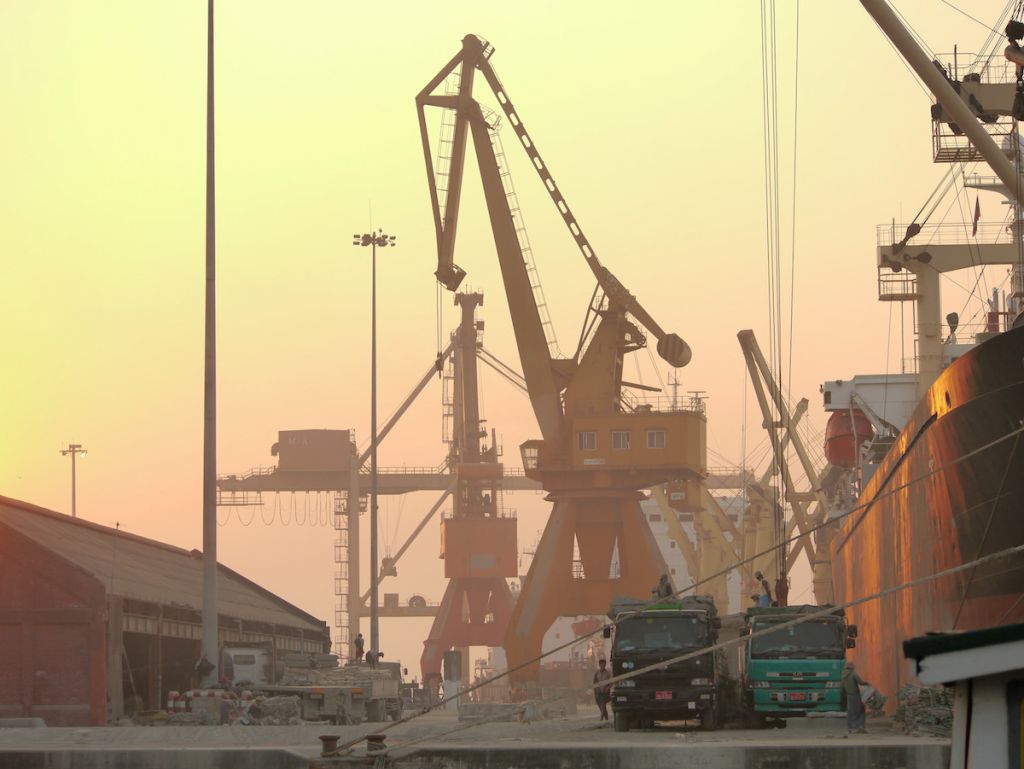
Myanmar Customs to Develop New Scheme For Faster Import, Export of Goods
YANGON, MYANMAR (27 July 2015) – The Asian Development Bank (ADB) is supporting the Myanmar Customs Department in developing its Authorized Economic Operators (AEO) scheme, a new system that will simplify and expedite the release of imported and exported goods.
At a 3-day workshop this week, customs officials will begin developing the AEO scheme, which will allow trade operators with a good record of customs compliance and a solid commercial records management system, to receive a range of trade facilitation benefits, including quicker customs processing.
“As Myanmar’s economy continues to expand and open to the world, it’s increasingly important for it to have strong customs measures in place to facilitate the free flow of goods,” said James Lynch, ADB’s Director for Regional Cooperation and Operations Coordination in Southeast Asia. “By taking this important step, Myanmar Customs is ensuring adherence to the ASEAN Economic Community Blueprint and the ASEAN Trade in Goods Agreement, as well as ensuring the country is in line with important World Customs Organization’s international standards and the World Trade Organization’s Trade Facilitation Agreement.”
This week’s workshop is just the first part of a comprehensive assistance program to develop a voluntary accredited trader scheme that will provide a range of trade facilitation benefits for compliant traders.
Through the workshop, customs officials will identify accreditation criteria and appropriate trade facilitation measures for AEOs in Myanmar, identify the most appropriate customs management structure for the AEO scheme, and develop a work plan to pave the way for a detailed AEO implementation plan.
These activities are being supported under ADB’s Regional Technical Assistance project for Strengthening Trade Facilitation in the Greater Mekong Subregion Through Partnerships With the Private Sector.
ADB, based in Manila, is dedicated to reducing poverty in Asia and the Pacific through inclusive economic growth, environmentally sustainable growth, and regional integration. Established in 1966, it is owned by 67 members – 48 from the region. In 2014, ADB assistance totaled $22.9 billion, including cofinancing of $9.2 billion.
